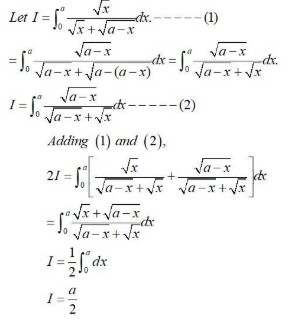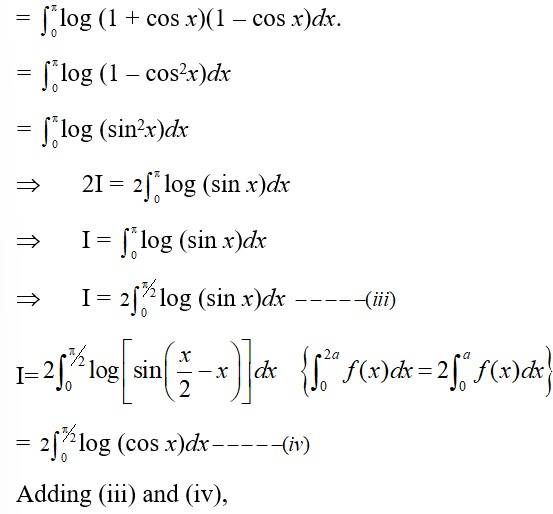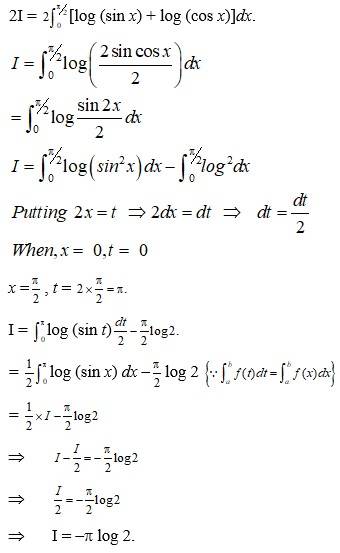Maths Integrals
Get insights from 376 questions on Maths Integrals, answered by students, alumni, and experts. You may also ask and answer any question you like about Maths Integrals
Follow Ask QuestionQuestions
Discussions
Active Users
Followers
New answer posted
7 months agoContributor-Level 10
Given, f(x) = f(a – x)
g(x) + g(a – x) = 4.
Let I = ____(1)
= f(x) g (a – x)dx
I = f(x) g(a – x)dx______(2)
Adding (1) and (2),
2I = [f(x) g(x) + f(x) g(a + x)]dx
= f(x) [g(x) + g(a + x)]dx
2I = f(x) 4 dx
I = f(x)dx = 2 f(x)dx.
New answer posted
7 months agoContributor-Level 10
Are f(x) = sin7x
f(–x) = sin7(–x) = –sin7x = –f(x).
i.e., odd function.
So, I = 0.
Taking an Exam? Selecting a College?
Get authentic answers from experts, students and alumni that you won't find anywhere else
Sign Up on ShikshaOn Shiksha, get access to
- 66k Colleges
- 1.2k Exams
- 686k Reviews
- 1800k Answers




